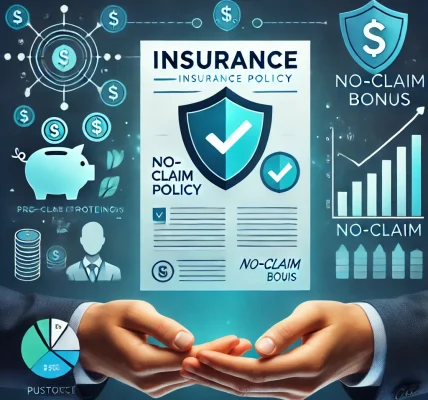Running a small business comes with its fair share of challenges. From managing daily operations to keeping customers happy, there’s a lot to juggle. However, one of the most important aspects of owning a business—often overlooked— is securing the right protection for your company. Small business insurance is essential for safeguarding your company from unexpected events like accidents, lawsuits, property damage, or theft. Without the proper coverage, your business could be exposed to financial risks that may be difficult or even impossible to recover from.
In this guide, we’ll explore what small business insurance is, the different types of coverage available, and why it’s essential for protecting your business. Whether you’re a new startup or a growing business, understanding your insurance needs can give you peace of mind and help your company thrive.
What Is Small Business Insurance?
Small business insurance is a type of insurance coverage designed to protect business owners from financial losses that may arise due to various incidents such as accidents, property damage, legal disputes, or employee-related risks. Insurance can act as a safety net for your business, covering potential costs and preventing a significant financial setback.
Different types of insurance offer protection for different aspects of your business, from property and liability coverage to employee benefits and workers’ compensation. Understanding the most common types of small business insurance will help you determine the right coverage for your business needs.
Types of Small Business Insurance
There is no one-size-fits-all solution when it comes to small business insurance. The type of coverage you need depends on the nature of your business, your industry, and the risks involved. Below are some of the most common types of small business insurance:
1. General Liability Insurance
General liability insurance is one of the most important and basic types of coverage for small businesses. It helps protect your business from claims of bodily injury, property damage, and advertising injury caused by your products, services, or operations. For example, if a customer slips and falls in your store or if you accidentally damage someone’s property while on the job, general liability insurance can cover legal fees and settlements.
Key Coverage Includes:
- Bodily injury claims
- Property damage claims
- Personal injury and advertising claims
- Legal defense costs
2. Property Insurance
Property insurance helps protect your business property, including your building, equipment, inventory, and furniture, from damage caused by fire, theft, vandalism, or certain natural disasters. Whether you own or lease your business space, property insurance ensures you don’t bear the full cost of repairs or replacements due to unexpected events.
Key Coverage Includes:
- Fire and smoke damage
- Theft and vandalism
- Storm and natural disaster damage (subject to exclusions)
- Equipment and inventory loss
3. Workers’ Compensation Insurance
Workers’ compensation insurance is essential if you have employees. This coverage provides financial support for medical expenses and lost wages if an employee is injured or becomes ill due to work-related activities. Workers’ compensation is not only required by law in most states but also helps protect your business from lawsuits related to workplace injuries.
Key Coverage Includes:
- Medical expenses for work-related injuries
- Wage replacement during recovery
- Disability benefits
- Legal costs if an employee sues your business
4. Business Interruption Insurance
Business interruption insurance, also known as business income insurance, covers loss of income if your business is temporarily unable to operate due to a covered event, such as a fire, storm, or other disaster. This coverage can help pay for operating expenses like rent, utilities, and employee salaries, allowing you to focus on getting your business back on track.
Key Coverage Includes:
- Lost income during business closure
- Ongoing expenses, like rent and utilities
- Temporary relocation costs
5. Professional Liability Insurance (Errors & Omissions Insurance)
Professional liability insurance is especially important for businesses that provide services or advice, such as consultants, accountants, or healthcare providers. It protects your business against claims of negligence, errors, or omissions in the services you provide. If a client claims that your advice or services caused them financial harm, professional liability insurance can cover the legal fees and settlement costs.
Key Coverage Includes:
- Claims of negligence
- Mistakes or errors in services provided
- Lawsuits related to professional advice
6. Commercial Auto Insurance
If your business owns vehicles or if employees use their personal vehicles for work, commercial auto insurance is essential. It provides coverage for damage to your vehicles and for injuries caused by accidents while driving for business purposes. Commercial auto insurance typically covers damages, theft, and liability in the event of a crash.
Key Coverage Includes:
- Damage to company-owned vehicles
- Liability for accidents involving business vehicles
- Medical expenses for employees injured in accidents
7. Cyber Liability Insurance
In today’s digital age, small businesses are at greater risk of cyberattacks and data breaches. Cyber liability insurance protects your business from financial losses due to cyber-related incidents, such as hacking, data breaches, or loss of customer information. It can help cover the costs of responding to a breach, such as notifying affected customers, legal expenses, and public relations efforts.
Key Coverage Includes:
- Data breach response and notification
- Legal fees related to cybersecurity incidents
- Losses caused by hacking or cyberattacks
- Reputational damage repair
8. Product Liability Insurance
If your business manufactures or sells products, product liability insurance is crucial. This coverage protects your business in case your product causes injury or damage to a person or property. If your product is faulty or causes harm to a consumer, product liability insurance can cover legal defense, settlements, or damages.
Key Coverage Includes:
- Injury or property damage caused by a defective product
- Legal defense and settlements
- Damages related to unsafe products
Why Small Business Insurance Is Important
Having the right small business insurance in place provides several key benefits:
- Protection from Financial Losses: Insurance helps shield your business from financial losses caused by unexpected events, allowing you to recover quickly.
- Peace of Mind: With the right coverage, you can focus on running your business without constantly worrying about potential risks or liabilities.
- Compliance with Laws: Some types of business insurance, such as workers’ compensation, are required by law, ensuring you stay compliant and avoid legal penalties.
- Business Continuity: In the event of a disaster, business interruption insurance and other types of coverage can help ensure that your operations continue without disruption.
How to Choose the Right Small Business Insurance
When choosing the right small business insurance, it’s important to assess the unique risks and needs of your business. Consider the following factors:
- Nature of Your Business: What kind of services or products do you provide? Are there any specific risks associated with your industry?
- Size of Your Business: The size of your workforce and the scale of your operations will influence the type and amount of insurance you need.
- Legal Requirements: Make sure you meet all the legal requirements for insurance in your state or industry.
- Budget: Insurance premiums can vary, so it’s essential to balance adequate coverage with your budget.
Consult with an experienced insurance agent who specializes in small business coverage to help you determine the right policy and coverage levels for your business.
Conclusion
Small business insurance is a crucial component of any business plan. It helps protect your assets, your employees, and your bottom line from unforeseen risks. By understanding the different types of coverage available and assessing your business’s unique needs, you can make an informed decision about the best insurance options for your business. Taking the time to protect your business now will ensure that you’re prepared for whatever challenges may arise in the future.




